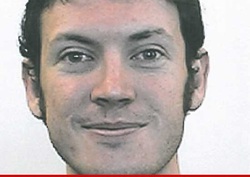
What happened in Aurora, Colo., in a movie theater early Friday morning is as impossible to understand as it is to prevent.
We’ve tried so hard for so long.
In 1995 we learned it wasn’t enough to look for shady characters or to lock our doors. We should have looked for trucks carrying fertilizer outside the Alfred P. Murrah Federal Building in Oklahoma City.
| | In 2001 we learned we should have looked into the sky for passenger planes that were hijacked and turned into guided missiles. Since then we have encountered a steady stream of mass murders that taught us to be wary of high school students who feel ostracized, of Norwegians who dress like police officers and show up at youth camps to administer death, of Army psychiatrists at Fort Hood and of seemingly quiet students at Virginia Tech. Years ago Americans coined the term “going postal” to trivialize what seemed to be a connection between disgruntled postal workers and random murder. Today that seems hopelessly antiquated and naïve. Now we add 24-year-old James Eagen Holmes to the list of people we wonder if we could have prevented from carrying out an assault on a movie theater as if he was Bashar al-Assad fighting rebels in Syria. As of Friday, authorities said the only time Holmes had any previous encounter with the law was for a speeding ticket, and that was five years ago. What went on in Holmes’ mind? Did he think at all about the pain, the anguish or the tears? Did he ponder the loneliness, the empty nights and the painful holidays where loved ones cry to a merciful God for just one more moment, one more sound of a voice or one more caress? What thoughts carried Holmes through his long preparations as he collected a helmet, gloves, leggings, gas mask, weapons, ammunition and the canisters of whatever gas it was he released before his deadly barrage? What tune played in his mind as he booby trapped his apartment, hoping to kill police and neighbors as people came to look at his stuff? We can’t know, nor will any statement he makes in court bring it into focus or make it easier to stop the next person. These aren’t new questions. Americans have been dealing with this since long before 1995. In 1927, a man in Bath, Mich., was upset that he had to pay too much in taxes for public schools. He lined the basement of the Consolidated School building with explosives, then waited until 9:40 a.m. on a school day to detonate them. Forty-five people died, including 38 children. About 100 more were injured. There was no TV or Twitter back then, but a nation still anguished. You can look it up. Truman Capote’s landmark book, “In Cold Blood,” describes the seemingly dispassionate way a type of killer can calmly make people suffer without a hint of sympathy or remorse. He quotes a psychiatrist who describes one such man who suffered no delusions, “no false perceptions, no hallucinations, but the primary illness of separation of thinking from feeling. … And in his own seclusive world it seemed to him just as right to kill his mother as to kill an animal or a fly.” We spend billions to send soldiers far away to stop terrorists, then are terrorized by some of our own who apparently walk among us like individual sleeper cells waiting for orders from within. There are no answers except one. We cannot let them win. We can respond with a resolve to spread hope the way Holmes allegedly spread bullets; to make comfort and compassion our weapons of choice. It won’t help us understand the evil, but it will restore some perspective. The good in the world outweighs the bad. |

 RSS Feed
RSS Feed

